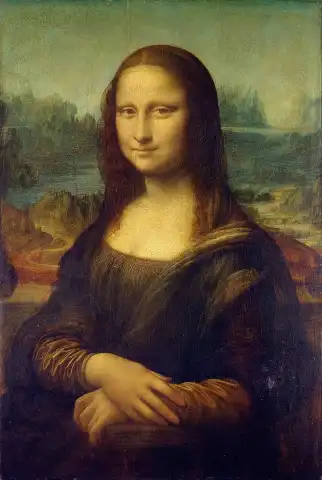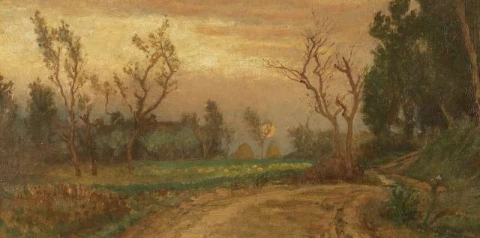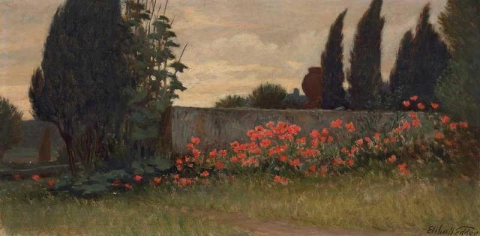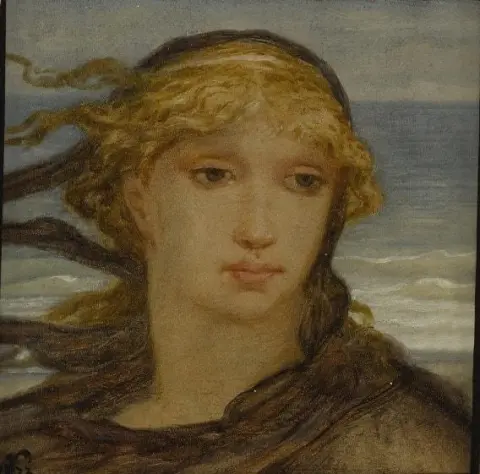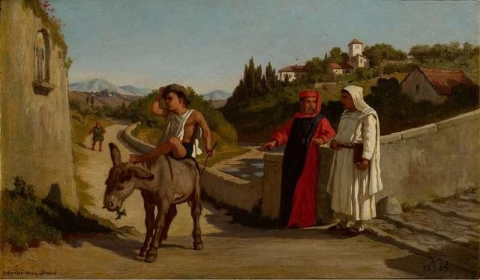

Hand painted reproductions of Elihu Vedder
Elihu Vedder: Exploring Symbolism and the Mysteries of the Human Soul
Elihu Vedder (1836–1923) was an American artist renowned for his symbolic paintings and intricate illustrations that delve into the depths of the human soul, mythology, and mysticism. A key figure in the Symbolist movement, Vedder’s work combined detailed realism with surreal and allegorical themes, often exploring ideas of life, death, and the afterlife. His art is celebrated for its intellectual depth, emotional resonance, and the spiritual undertones that pervade his compositions.
Early Life and Artistic Development
Elihu Vedder was born in New York City in 1836. He showed an early interest in drawing and attended the prestigious National Academy of Design, where he honed his artistic skills. In his early years, Vedder was drawn to Classical and Romantic art traditions, yet he was particularly influenced by the Symbolist movement, which sought to represent the emotional and spiritual aspects of the human experience rather than merely its physical form.
Vedder’s travels to Europe, especially Italy, exposed him to the work of Renaissance masters and contemporary European artists, which deeply influenced his creative development. His time in Rome allowed him to immerse himself in the study of mythology, religious symbolism, and ancient art, which would become central themes in his later works.
Style and Technique
Elihu Vedder’s work is known for its richly symbolic content and intricate detail. He was a master of combining realistic elements with fantastical, dreamlike imagery. His paintings and illustrations often featured allegorical subjects, such as death, fate, and the journey of the soul, rendered with both technical precision and an ethereal quality.
Vedder’s symbolic use of color and form was central to his style. He frequently employed muted tones and subtle gradations of light and shadow, creating a sense of mystery and introspection in his works. His attention to detail was particularly evident in his illustrations, where he skillfully conveyed depth, texture, and movement, all while maintaining an air of dreamlike fantasy.
One of his most notable works, The Search for the Holy Grail, reflects his fascination with mythological themes and his ability to capture a complex narrative through visual art. The use of symbolic imagery, coupled with his precise yet evocative rendering of the human form, set Vedder apart from many of his contemporaries.
Legacy and Recognition
Elihu Vedder’s work gained recognition both in the United States and abroad. He became well-known for his illustrations in periodicals and books, as well as his larger symbolic paintings. Vedder was also an accomplished muralist, creating murals for the Library of Congress in Washington, D.C., that reflected his unique blend of allegory and classical influence.
Vedder’s contributions to the Symbolist movement have earned him a place in art history as one of the key American artists of the late 19th and early 20th centuries. His work continues to be admired for its intellectual depth, emotional complexity, and spiritual themes. Today, Vedder’s paintings and illustrations are housed in various museums and private collections, where they are valued for their timeless exploration of human experience and mysticism.
Own a Handcrafted Oil Painting Reproduction of Elihu Vedder’s Masterpieces
Bring the profound symbolism and mysticism of Elihu Vedder’s art into your home with a handcrafted oil painting reproduction. Each piece captures his meticulous detail, allegorical themes, and spiritual depth, allowing you to experience the timeless allure of Vedder’s vision.
Imagine owning an original-style painting by one of the greatest artists in history. At POD, we offer you the chance to make this dream a reality. Each canvas is faithfully reproduced down to the smallest detail, allowing you to experience the beauty of the artist’s vision in your own home.
Our reproductions are crafted by experienced painters using the finest materials and time-honored methods. We are committed to delivering works of exceptional quality that will inspire and bring joy to your family for generations to come.
